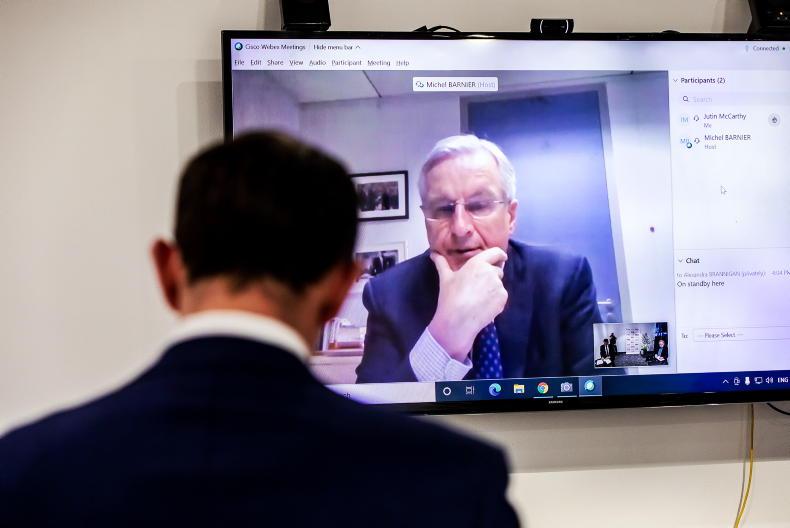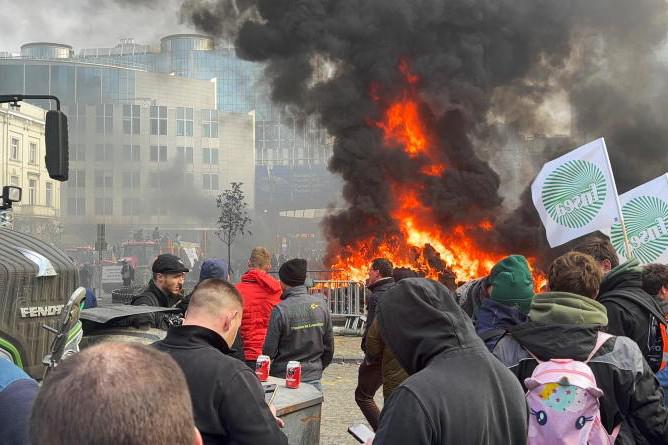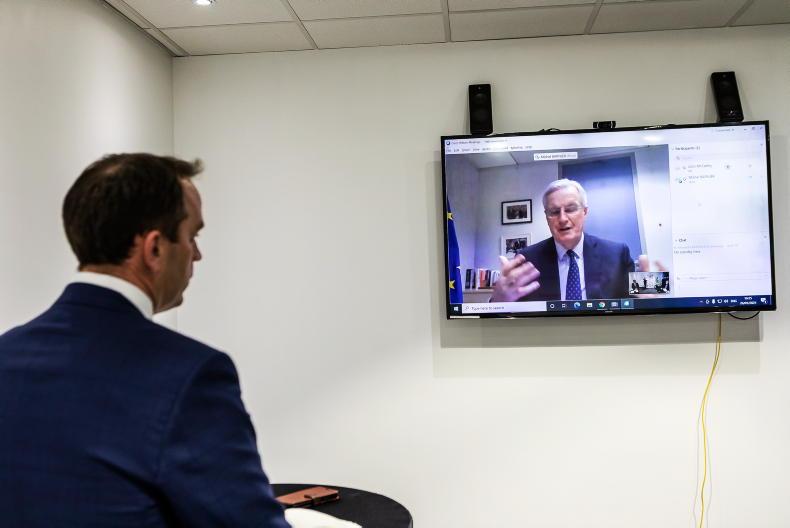The challenges facing the Irish beef sector in the years ahead were laid bare this week. On Tuesday, in an exclusive interview with the Irish Farmers Journal, former European Commission chief Brexit negotiator Michel Barnier confirmed the scale of the Brexit threat that remains for Irish farmers. There are no measures within the EU-UK deal to prevent a scenario developing where the UK globalises its internal food market while continuing to have access for British produce into the EU single market.
It is the worst of both worlds for Irish farmers – squeezed out of the UK market due to cheap imports while competing with British produce in the EU market. Again, the only protection is based on the hope that consumers will stick with British and Irish produce despite the availability of cheap imports.
Economic impact
Also in this week's edition, Phelim O’Neill details the outcome of an EU economic impact assessment carried out across the range of EU trade deals currently being negotiated. Overall, the outcome for agriculture is seen as positive. Beef is exposed with a 2.4% hit to EU beef prices forecast, as is sheepmeat with up to a 3.1% hit to prices. If applied linearly across all member states, the impact to Irish beef farmers would be €50-€60m per annum. But as the largest beef exporter in the EU, beef prices in Ireland are likely to carry a disproportionate loading. It is against this backdrop that farmers will be listening closely to An Taoiseach Micheál Martin when he addresses the IFA AGM on Thursday. More warm words on future plans for the beef sector in the face of such long-term challenges will carry little weight.
Instead, farmers will expect a solid commitment from the Taoiseach that the €1bn Brexit Adjustment Reserve fund, plus additional reserves from the Government’s €5.5bn recovery and contingency funds, will be invested strategically to support farm incomes into the future.
A commitment to complete an economic assessment as to the impact on Irish agriculture from both the EU Farm to Fork strategy and EU trade deals is something totally within the Taoiseach’s control and would form a solid basis on which to build a national strategic plan.
Farmers will also be expecting a commitment that a solution will be found to prevent €40m being clawed back from farmers under the BEAM scheme. Allowing non-compliant farmers an additional year to meet reductions has been suggested in recent days. Such a move would respect those who have complied with the terms of the scheme while acknowledging the COVID-19 challenges faced by others.
Also, as we report here, eco-schemes and CAP implementation were key issues are recent IFA regional meetings.










SHARING OPTIONS